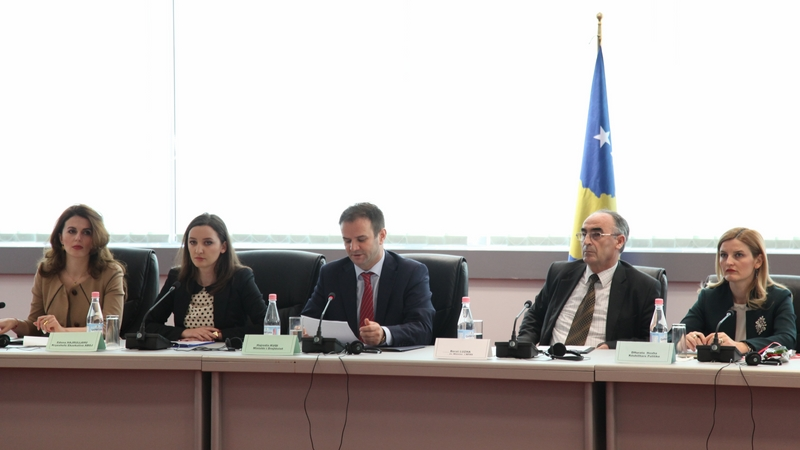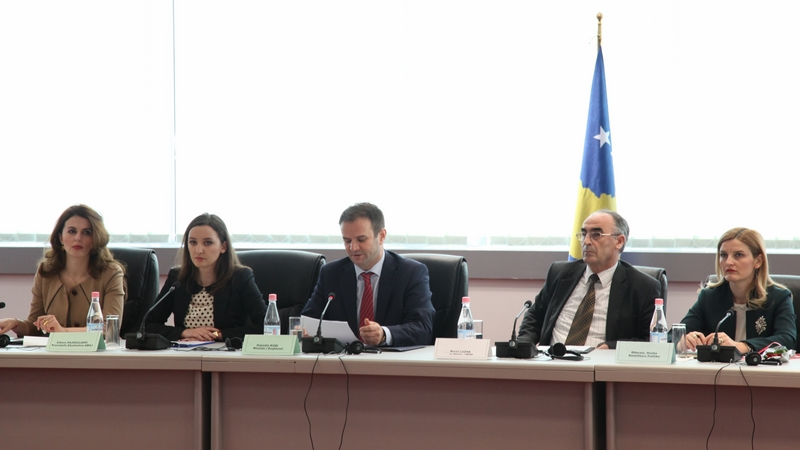

Discussions on access to justice for women and girls, victims of sexual violence during the war in Kosovo
The Agency for Gender Equality within the Prime Minister's Office has marked the 8 March – International Women's Day, through the roundtable "Access to justice for women, victims of sexual violence during the war in Kosovo," which was dedicated to women and girls who were raped during the war in Kosovo.
The intention of this roundtable was to bring together all the stakeholders who provide support to women and girls, victims of sexual violence during the last war in Kosovo, with the aim of reviewing options and issuing concrete recommendations on how to orient government policies towards a solution that represents the victims' best interests.
On this occasion, the Chief Executive Officer of the Agency for Gender Equality, Edona Hajrullahu announced that the Agency is in the process of drafting an action plan for the implementation of Resolution 1325 of the United Nations Security Council "Women, Peace and Security" and expressed commitment in finding an acceptable and favorable solution for those girls and women who are an equal part of Kosovo society. "Our goal is that through the implementation of this national action plan, the victims of sexual violence, torture and other forms of violence of war have access to functional mechanisms for the protection, access to justice, rehabilitation and re-integration" said Mrs. Hajrullahu.
The Deputy Prime Minister, respectively the Minister of Justice, Prof. Dr. Hajredin Kuçi said: "there is still a special need to approach these women to justice, fortunately there have been many years now that Kosovo has created its own institutions, which are precisely profiled to facilitate this access to justice. They do a great and hard job. However, in a country where justice has been denied for decades and centuries, access to justice will never be enough – it is not something that can be fixed for a few years. Therefore, a greater work still needs to be done, "said Kuçi.
Kuçi said that the Government through the initiative of the Ministry of Justice has formed an inter-ministerial working group to deal with the past. According to him, the group will deal in details with the issue of repairing the damages to victims of sexual violence during the war in Kosovo.
Minister of European Integration, Çitaku said that raped women and girls during the war in Kosovo are a category that has so far been forgotten by society, family and institutions. After the war, the situation of these women has been miserable not only in material terms but also in social, health, legal, and above all spiritual terms. Our institutions must confront and give solution to this problem. For many of us the war ended 13 years ago, but to 20 thousand women and their families the struggle still continues.
On the other hand, the Deputy Minister of Labor and Social Welfare, Berat Luzha said that there is no evidence for women victims of rape during the war in Kosovo.
